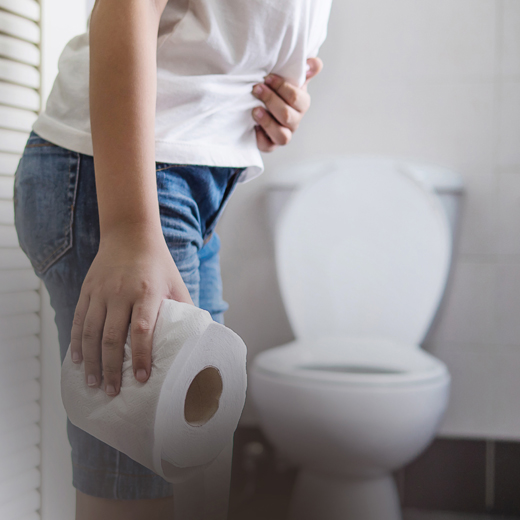 The 21st century is not conducive to gut health. Stress, poor diet, antibiotics and environmental pollution have a negative impact on the digestive system. That’s why dieticians often see people with digestive disorders in their clinics – almost half of all clients have this type of ailment. Of course, each case must be approached individually. Each one may have a different cause and progress differently, and each requires a properly chosen dietary therapy.
The 21st century is not conducive to gut health. Stress, poor diet, antibiotics and environmental pollution have a negative impact on the digestive system. That’s why dieticians often see people with digestive disorders in their clinics – almost half of all clients have this type of ailment. Of course, each case must be approached individually. Each one may have a different cause and progress differently, and each requires a properly chosen dietary therapy.
CONSTIPATION – CAUSES
The most common digestive disorders include constipation, which should be interpreted as a key manifestation of poor digestion, not just as symptoms to be eased with something from the chemist. Constipation is a signal that your diet is incorrect and that the digestive system is begging for help. The main factors leading up to it are a low-residue diet and insufficient fluid intake. The problem is exacerbated by a sedentary lifestyle and constant or excessive taking of pharmaceuticals and supplements, which are factors often seen in the 21st century.
Medications that hinder bowel movement include, first and foremost, antidepressants, antiepileptics, opioids, diuretics, painkillers, anaesthetics and blood pressure regulating drugs, all of which are taken regularly by many people. People who supplement with iron and calcium in an uncontrolled (often excessive) manner may also have problems with constipation. Paradoxically, the problem often intensifies as a result of using laxatives, which work in the short term, but in the longer term slow down the work of the intestines (make them lazy) and result in the gut working properly only if these products are taken.
Another reason for chronic constipation that should be highlighted is deliberately delaying emptying your bowels. Inhibiting defecation decreases the threshold of rectal sensitivity to the stimulus that informs about the need for a bowel movement. As a result, the faecal mass remains in the last section of the large intestine, water is excessively reabsorbed from the stool, and then the stool thickens, becomes harder and excretion is difficult.
CLASSIFICATION AND CHARACTERISTICS
In terms of treatment, the root cause of constipation must be determined. Constipation can be divided into atonic and spastic, and their type will determine the dietary assumptions that should be taken to successfully eliminate the problem. There are vast differences in the dietary recommendations in these two cases.
Atonic constipation occurs as a result of slowed work of the intestines caused by, among other things, long-term use of laxatives, which means increased absorption of water from the stool in the large intestine. As a result, the stool becomes harder and increasingly difficult to pass. The problem is exacerbated by a sedentary lifestyle, lack of physical activity, and reduced muscle tautness, which weakens the muscular layer of the large intestine.
The second type of constipation is spastic, which unlike atonic constipation, is caused by a pathological contraction of intestinal muscles, often caused by inflammation, stress or intestinal irritation, for example, a high-fibre diet.
Sometimes, there’s also two-phase defecation. This is a fully physiological phenomenon that is not a cause for alarm, as long as you realise how you should proceed. Two-phase defecation is passing stool in two stages that are within 10 to 20 minutes apart. In such a case, the most important thing is to give yourself time to leave the bathroom after the first phase and calmly wait for the next urge to pass stool. Undiagnosed two-stage defecation can lead to problems with haemorrhoids if the abdominal press is impatiently and ineffectively pressed right after the first phase before the second phase of defecation begins.
TREATMENT
For atonic constipation, the best solution is increasing the level of physical activity and introducing a high-fibre diet, which will increase hard stool mass. You’ll only feel an urge to go to the toilet if the anal canal is completely full of excrement. Studies have shown that following a diet rich in vegetables and fruit can increase stool mass by up to 100 grams and normalise the defecation process.
Treatment for atonic constipation also includes products that bulk, hydrate and increase stool mass. Laxatives should be a last resort. They work based on stimulating the nervous system, which is the defecation reflex. However, the goal of combating atonic constipation is regulating the digestive system, which is supposed to start dealing with the condition on its own.
Spastic constipation requires a completely different approach. The diet should be easy to digest, i.e. low-residue, without fruit skin, raw vegetables and wholegrain bread. Instead, cooked vegetables, puréed fruit, light, fine pasta and wheat bread should be introduced into the diet.
As is clear from the above, the key thing is to determine which type of constipation you’re dealing with. Otherwise, consuming thick groats and additional fibre supplements (when dealing with spastic constipation) may actually further irritate the intestine and, instead of helping, exacerbate the problem.
Another important factor is correct toilet posture. The best position for emptying your bowels is squatting, because the angle between your torso and legs is less than 90 degrees. Unfortunately, when passing stool, we often assume a straight position, in which the puborectalis muscle tightens the rectum, which causes faecal impaction. A good solution for assuming the squatting position is placing a small stool under your feet.
CONSTIPATION IN CHILDREN
In today’s day and age, constipation is also diagnosed in children, and so every parent should observe the frequency with which their child passes stool. Young children aren’t always able to express what’s wrong. Symptoms that you should look out for if you suspect your child is constipated are a hard, bloated and sore tummy, alternating irritability and apathy, and increased flatulence. Another thing that may be worrisome is an unusual posture. This occurs when the child, while playing, suddenly stops, ceases moving and tightens their buttocks. In this way, they try to hold in the bowel movement, which when blocked like this often, can lead to chronic constipation. In such cases, the parent must react immediately and take the child to the toilet. Otherwise, it can lead to the development of a defecation disorder or even an irreversible problem with the defecation reflex.
Sometimes, situations can occur in which children don’t pass stool for even up to two weeks. Stool mass that’s kept in the intestine becomes very hard, and once the moment of elimination comes, it can be quite painful for the child. There’s also a high likelihood of bleeding from anal fissures. All this can make the child scared and it may be difficult to convince them to visit the toilet regularly, which further exacerbates the problem.
GENERAL DIETICIAN’S GUIDELINES FOR DIGESTIVE PROBLEMS
There are general principles that anyone who has noticed unsettling digestive symptoms should remember. The first is not drinking much during meals. This doesn’t mean, however, that you shouldn’t drink much during the day. Quite the contrary – good hydration contributes to proper development of the mucosa, which lines the digestive system and to a large extent determines its correct functioning. A damaged mucosa is a huge problem for people who should go on a high-fibre diet. Increased fibre will only further irritate the exposed intestine, and not bring any positive therapeutic effects.
Other recommendations for digestive problems include limiting alcohol consumption, smoking and eating very hot meals. In addition, you should turn eating into a little ritual – give yourself some time to calmly eat and thoroughly chew every bite. Don’t forget that digestion starts in the mouth. The fundamental rule of proper eating is doing so in peace and without rushing. Don’t get distracted by the TV, radio or reading. When you think about food, you see it, feel its flavour, aroma and texture, and our body produces the first digestive juices. Interestingly, this phase occurs in our mind, yet is responsible for one-fifth of the entire process of digestion.
Also remember to exercise, which is great for stimulating, regulating and quickening the work of the intestines, and reducing stress, which has a very destructive effect on the body and general health. If you follow a healthy lifestyle and diet, your digestive system, digestion and elimination shouldn’t cause too many problems. On the other hand, if you have serious digestive issues that impact your quality of life, consult a doctor, who will refer you for the proper testing to detect possible serious digestive disorders. Don’t forget to not diagnose yourself, but trust a specialist instead.
Anna Holopa, Zaparcia – jak przeciwdziałać i leczyć? [CONSTIPATION Prevention and treatment], DietPoint, 1(4)/2020, S. 10-13].













